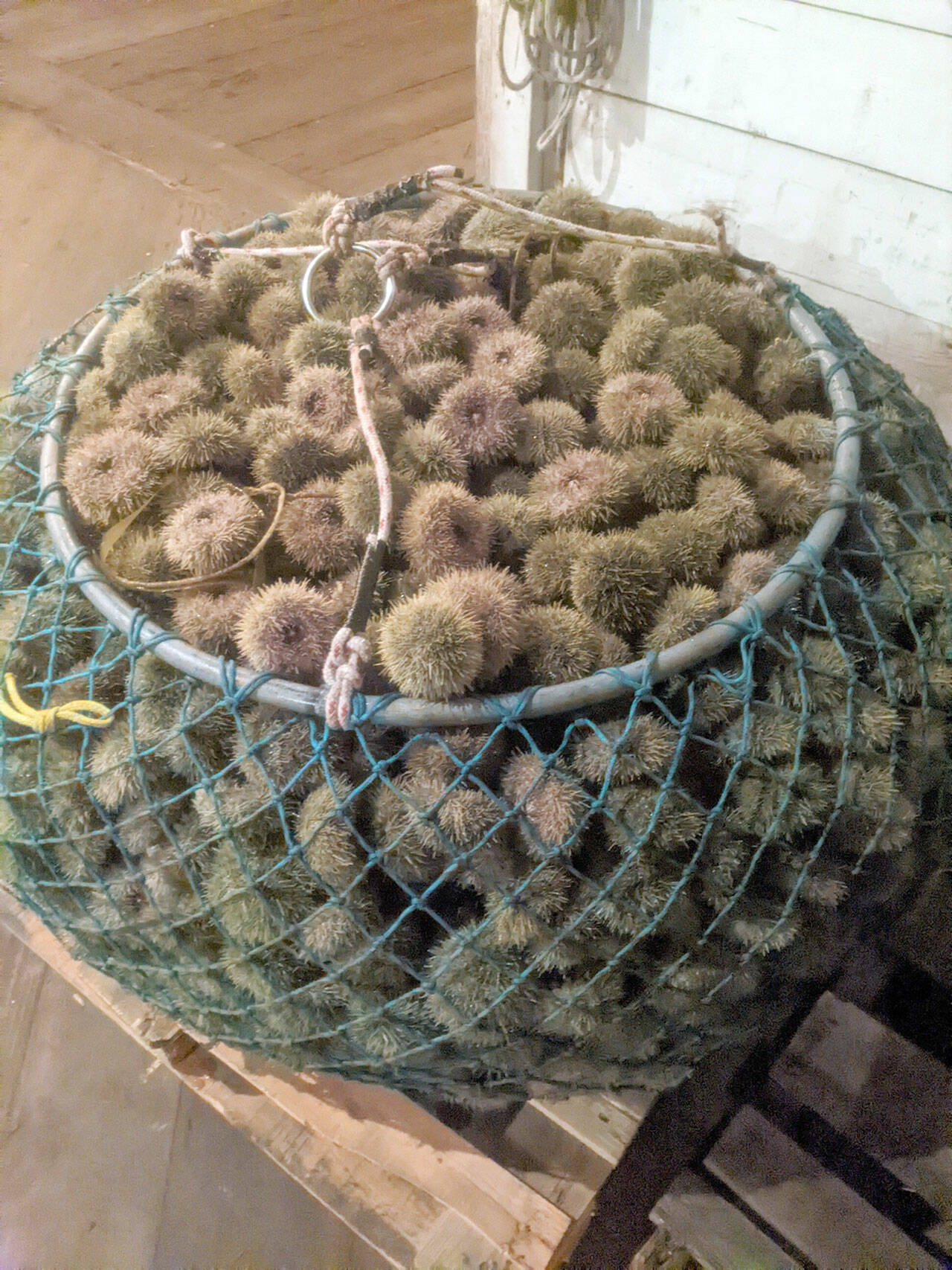PORT ANGELES — A company that offloaded 1,400 pounds of green sea urchins worth $2,000 at Port Angeles Boat Haven is under investigation for receiving the spiny delicacy without the proper paperwork.
The state Department of Fish and Wildlife is not releasing the name of the company, which is located on the Interstate 5 corridor, because the investigation is ongoing, said Lt. Kit Rosenberger of the WDFW.
News outlets have erroneously reported the company is located in Port Angeles.
Because the offloading occurred in Port Angeles, it is likely Clallam County would have jurisdiction in the case if the WDFW decides to pursue charges.
Among the charges the WDFW is pursuing are first-degree unlawful fish and shellfish accounting, a Class C felony, and operating without a valid commercial wholesale license.
The company already was on probation for previous violations to which it had pleaded guilty, Rosenberger said.
Commercial sea urchin fishery in Washington is strictly regulated.
Rules (WAC 220-340-750) cover harvest limits, exclusion zones, seasons and allowable fishing gear. Harvesters are limited to 1,500 pounds of green sea urchins per week during the season; fishing closes when the quota for a particular area has been reached. Quotas for red sea urchins are higher.
State law (WAC 220-352-345) requires wholesale buyers to complete a fish ticket that includes their name, the name of the harvester, the date of the sale, the name of the landing site and the number of pounds received from the particular sea urchin district for every transaction. The fish ticket must be submitted to the WDFW no later than 10 a.m. the day following the sale.
Commercial harvesters are required by state law (WAC 220-340-030) to maintain a logbook in which they record the details of the site where they harvested the sea urchins, their weight and to whom they were sold. The harvester keeps a copy of the logbook and submits one to the WDFW.
“It’s a violation for the person buying the harvest and the urchin diver not to complete the ticket,” Rosenberger said.
The harvester in this case also is being investigated and facing felony charges, Rosenberger said.
The ticket system enables WDFW managers to track harvests to make sure they don’t exceed quotas, Rosenberger said. It also alerts managers to discrepancies between what buyers and harvesters report.
That appears to be what happened in this case in January.
“Officers did a follow-up inspection at a warehouse along the I-5 corridor of a company that routinely buys shellfish,” Rosenberger said. “They located the sea urchins, and there wasn’t a record of them being harvested.”
Rosenberger said WDFW officers are constantly on the lookout for fish ticket infractions and take violations seriously.
“It’s the primary tool that our fisheries managers use to track quotas and make sure we’re not overharvesting an area or species,” he said. “It can have a really traumatic impact to our natural resources.”
Sea urchins belong to the same family as starfish and sand dollars. They are vital to the health of marine ecosystems and are a traditional food source for tribes in the Pacific Northwest.
The WDFW and biologists with tribes co-manage the sea urchin harvest in order to main healthy numbers. Rosenberger said close monitoring of harvests is critical because sea urchins are a valuable commodity.
“They’re worth a lot of money, so there is a large incentive for criminals to try to poach and make money from it,” he said.
Green and red sea urchins harvested in Washington end up on dinner plates across the globe, with Asia a top destination, Rosenberger said.
According to the WDFW, the 2021-2024 commercial and tribal landings for green and red sea urchin fishery was valued at $2 million. In comparison, geoduck landings were valued at $24 million and Dungeness crab landings valued at $41 million during the same period.
The 1,400 pounds seized by the WDFW didn’t go to waste. As in other cases when confiscated sea urchins are fresh and marketable, they were sold by the WDFW to a licensed buyer.
________
Reporter Paula Hunt can be reached by email at paula.hunt@peninsuladailynews.com.
